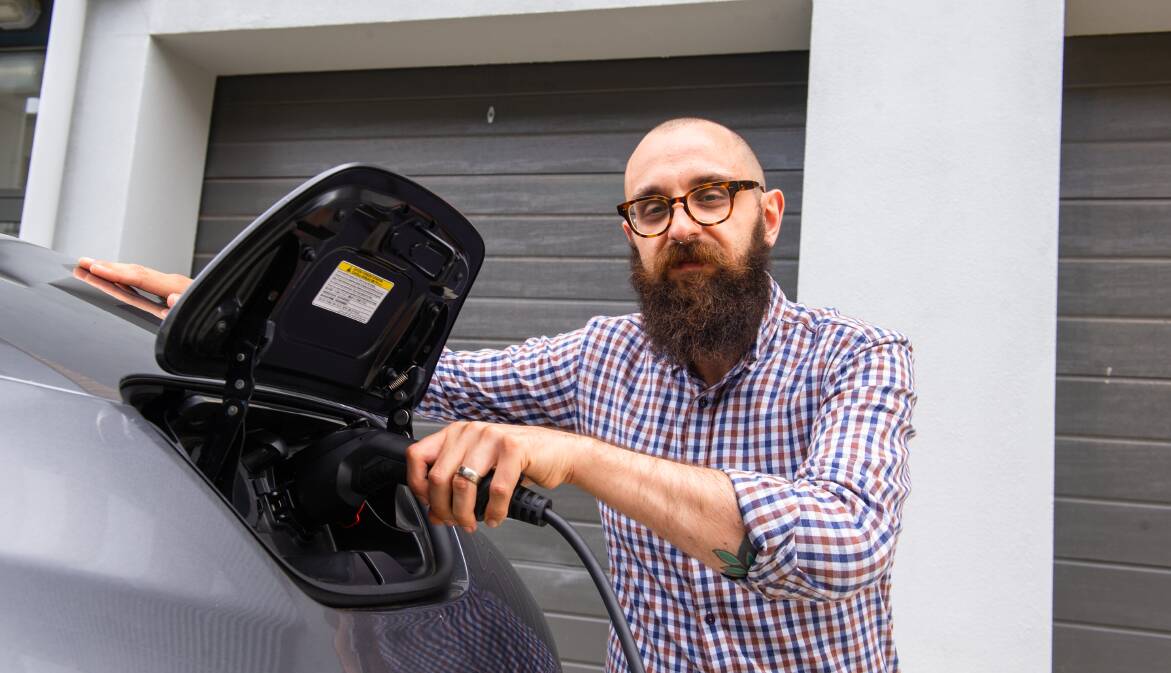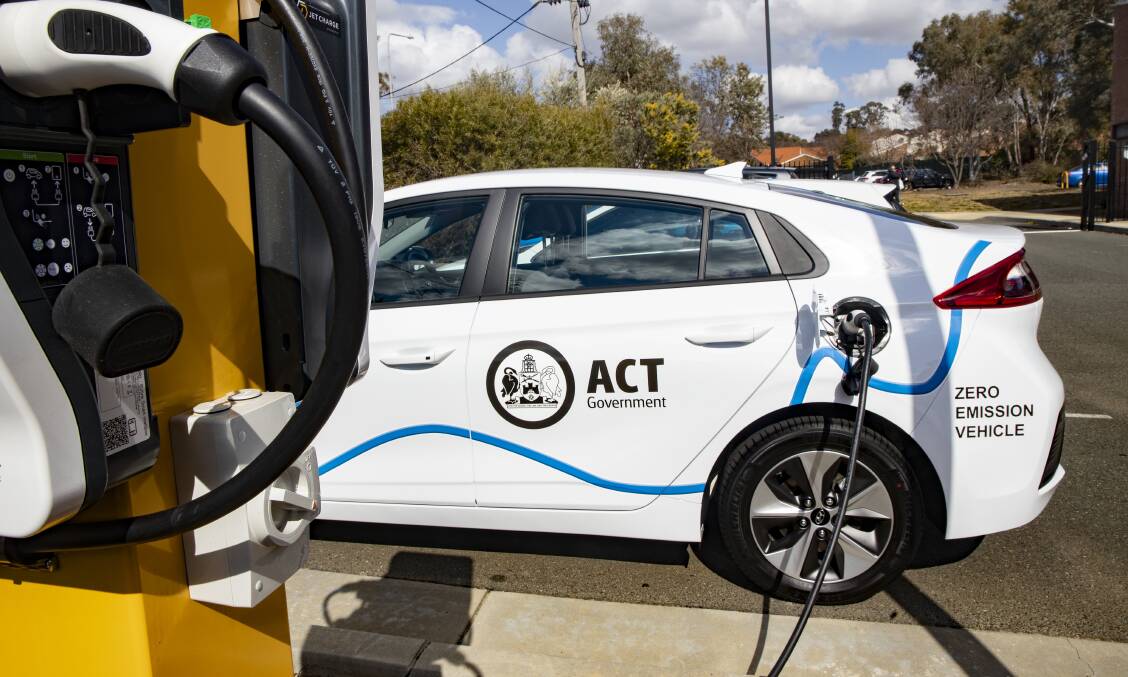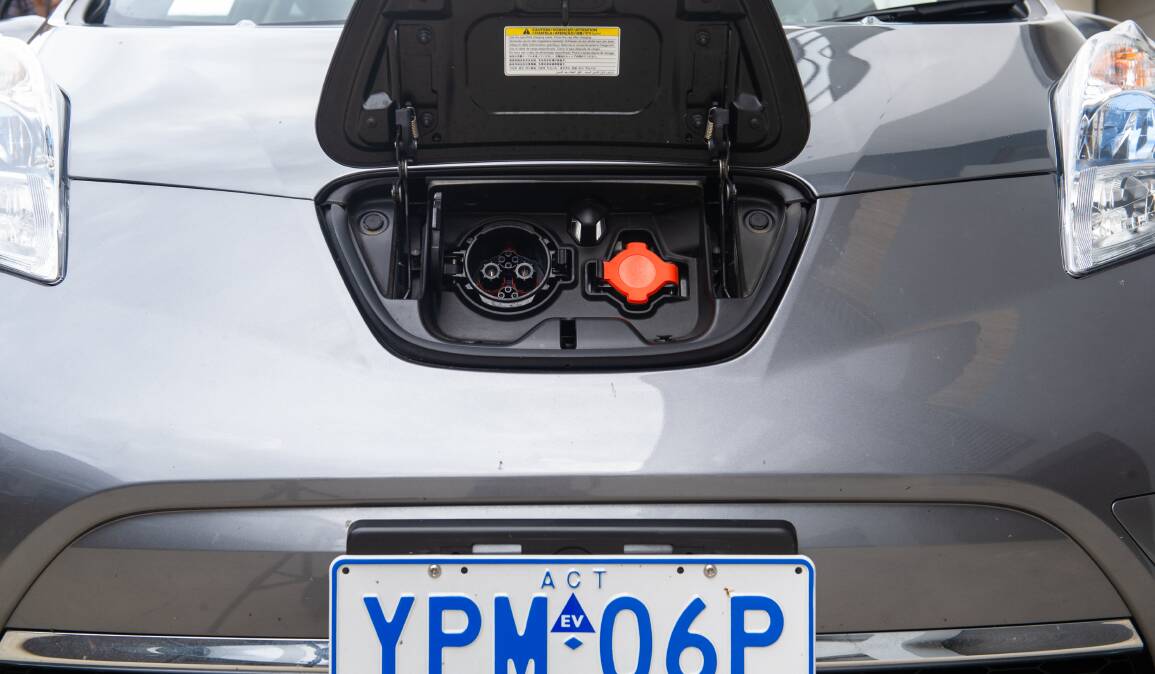
A stamp duty waiver for zero-emission vehicles will be extended to cover second-hand models and the ACT government will overhaul planning rules to ensure new apartment buildings can charge electric cars.
The government will also ensure there are 180 public electric vehicle chargers in the territory by 2025 and begin offering incentives next year to encourage people to buy electric bikes, motorbikes and trikes.
Apartment buildings will be able to access $2000 worth of incentives to retrofit charging infrastructure, which the government concedes is technically challenging in buildings that were not originally designed to charge parked cars.
The initiatives are outlined in the ACT's zero emissions vehicle strategy, published on Wednesday, which includes introducing a ban on new fossil fuel-powered light vehicles from 2035 and overhauling the registration system to charge motorists based on the emissions they produce rather than the weight of their vehicle.
The government has also set an "aspirational" target that between 80 and 90 per cent of new vehicle sales in the ACT are zero-emissions models by 2030, and will ban new ride-share and taxi vehicles from being fossil-fuel powered by 2030.
"This would not affect existing drivers on these networks, but would ensure that these key local fleets progressively become cleaner over time," the strategy said.
"It also sends a clear signal to drivers who are considering replacing their vehicle within the next few years to make the switch to a [zero-emissions vehicle], bringing forward more vehicle purchases towards the overall [80 to 90 per cent] sales target."

The government will change its own definition of zero-emissions vehicles to exclude plug-in hybrid electric vehicles and work towards a demonstration project for zero-emission commercial vehicles before 2025.
Zero-emission waste trucks should also replace current fossil-fuel powered models by the mid-2030s, the government said. An electric garbage truck is already being trialled in the territory.
The strategy said waiving stamp duty on second-hand zero-emission vehicles from August 1 would cut the average cost by $1600, making the vehicles more attractive to potential buyers.
New zero-emission vehicles are already exempt from stamp duty in the ACT.
The government will seek changes to planning rules from 2023, requiring new multi-unit residential and commercial buildings to have the necessary infrastructure to charge electric vehicles.
"The experience in some other countries such as Norway shows that a reliable and strategic public charging network can meet much of the [electric vehicle] charging need of people living in apartments, avoiding the need to retrofit charging into apartment buildings," the strategy said.
"In the ACT, the solution is likely to be a mix of public charging and EV charging at apartment buildings. The solution for each building will depend on the viability of installing charging stations on site."

Applications to install charging stations on public land will also be streamlined, with the government signalling public car parks could present opportunities for charging station operators to install and run public charging infrastructure.
The number of public chargers will be monitored by the government, which wants to ensure there are 180 available by 2025 - the forecast number required.
"Over the long term, this will help increase demand for [zero-emission vehicles] in the ACT and help to reduce risk for the charging industry and build a sustainable charging market," the strategy said.
More than 500 publicly accessible electric vehicle charging stations will need to be installed across Canberra before the end of the decade to support the take-up of zero-emission cars, the ACT government's December 2021 charging outlook said.
Chief Minister Andrew Barr said he was beating a path to the door of vehicle manufacturers and importers in an effort to secure between 18,000 and 20,000 new electric vehicles a year in the local market by 2030, needed to reach the sales target.
"We're going to need thousands of extra vehicles, so part of that is persuading all of the major vehicle manufacturers to make their vehicles available in the ACT," Mr Barr told The Canberra Times.
"But I think I've got a very story to tell to attract that, knowing they will sell, they are selling. There's a very long waitlist and we've got these policy settings in place to encourage it."
We've made it a whole lot easier for you to have your say. Our new comment platform requires only one log-in to access articles and to join the discussion on The Canberra Times website. Find out how to register so you can enjoy civil, friendly and engaging discussions. See our moderation policy here.







